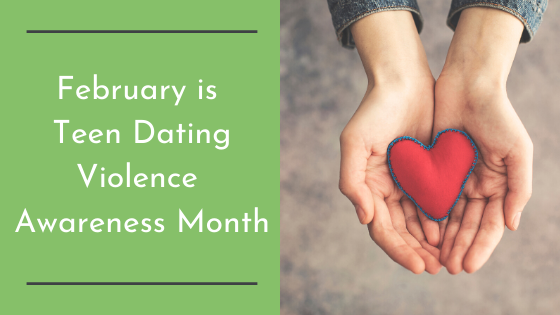February is Teen Dating Violence Awareness Month
This week’s blog is written by Jada Charley, CEO/President, SAFE Homes Rape Crisis Coalition
What I Wish Everyone Knew About Teen Dating Violence
Teen dating violence is becoming more frequent, with 1 in 10 girls and 1 in 25 boys reporting that they have experienced physical or sexual violence in their relationships. Dating violence can be physical, sexual, psychological, or stalking.
- Physical violence is when a person hurts or tries to hurt a partner by hitting, kicking, or using another type of physical force.
- Sexual violence is forcing or attempting to force a partner to take part in a sex act, sexual touching, or a non-physical sexual event (e.g., sexting) when the partner does not or cannot consent.
- Psychological aggression is the use of verbal and non-verbal communication with the intent to harm another person mentally or emotionally and/or exert control over another person.
- Stalking is a pattern of repeated, unwanted attention and contact by a partner that causes fear or concern for one’s own safety or the safety of someone close to the victim.
A teen’s relationship may be unhealthy if they are experiencing one or more of the following things:
- Checking their cell phone or email without permission
- Constantly putting them down
- Extreme jealousy or insecurity
- Explosive temper
- Isolating them from family or friends
- Making false accusations
- Mood swings
- Physically hurting them in any way
- Possessiveness
- Telling them what to do
If a teen is experiencing any of these things, it is important that they know they are not alone, and that people are here to help. If a teen is uncomfortable talking with a trusted adult, they can talk with someone who can help at SAFE Homes 24 hours a day at 1.800.273.5066.
Remember that any relationship a teen has (or are looking to have) with a partner should be built on what they agree is healthy. It’s important to look for someone who will:
- Treat them with respect.
- Doesn’t make fun of things they like or want to do.
- Never puts them down.
- Doesn’t get angry if they spend time with friends or family.
- Listens to their ideas and comprises sometimes.
- Isn’t excessively negative.
- Shares some of their interests such as movies, sports, reading, dancing or music.
- Isn’t afraid to share their thoughts and feelings.
- Is comfortable around their friends and family.
- Is proud of their accomplishments and successes.
- Respects their boundaries and does not abuse technology.
- Doesn’t require them to “check in” or need to know where they are all the time.
- Is caring and honest.
- Doesn’t pressure them to do things that they don’t want to do.
- Doesn’t constantly accuse them of cheating or being unfaithful.
- Encourages them to do well in school or at work.
- Doesn’t threaten them or make them feel scared.
- Understands the importance of healthy relationships
Remember that healthy relationships are a two-way street. Both a teen and their partner should have equal say and never be afraid to express how they feel. It’s not just about speaking up for themselves -they should also listen and seriously consider what their partner says. Every relationship has arguments and disagreements sometimes, but what is important is how they choose to deal with disagreements. Both people should work hard to communicate effectively.
For more information about healthy relationship resources for teens visit: connectspartanburg.org/healthy-relationships-teens or loveisrespect.org/

